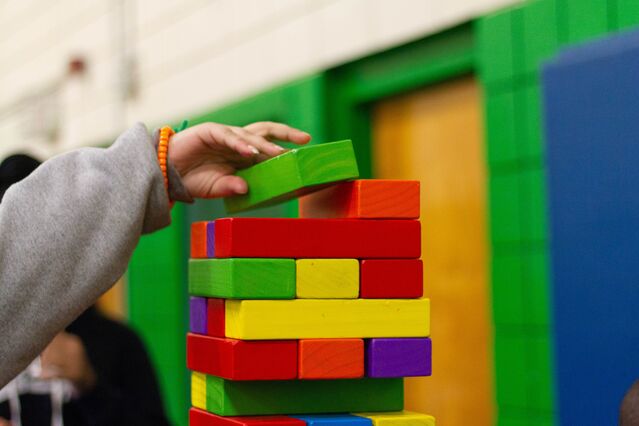Education
How to Prepare Kids for a Global Economy Through Mastery
Kids need more than high test scores to succeed in an interdependent economy.
Posted May 2, 2021 Reviewed by Jessica Schrader
Key points
- Schools in the U.S. often teach to proficiency rather than mastery.
- It is essential for parents to be educators as well to supplement instruction and ensure mastery.
- Mastery is the ability to transfer learned skills to myriad complex situations outside the classroom.
- By providing opportunities to demonstrate learned skills outside of the classroom, parents better prepare children for the global economy.
A key aspect of mastery is a child’s ability to apply what they’ve learned in school to complex situations outside of the classroom. In the U.S., mastery is often boiled down to a magical number on a report card. So long as students are placed on honor roll, it is assumed they have achieved mastery.
This is not universally true.
While honor roll accolades are lovely, academic expectations at schools across the US vary greatly. Grades can often be inflated by classroom activities. Just because your child is in third grade does not mean that they are necessarily operating at a third-grade level academically.
My experience raising 3 children in local public schools of Shanghai, Hong Kong, and Tokyo illustrate how various countries confront the issue of mastery in their society. It was living within these cultures, I learned the true meaning of mastery—and how parents are key to supporting their children’s development into thriving, high-functioning adults.
The True Meaning of Mastery
Mastery means learning a concept and then, from that point forward, possessing the ability to transfer that skill into myriad contexts repeatedly. I’ll illustrate with an example. Let’s consider a basic lesson in measurement.
Our hypothetical student learns how to measure an object using both the standard US and metric systems of measurement at school. The same student earns a perfect score on the measurement quiz in class. Their parent(s) are likewise thrilled.
Is that true mastery? Depends.
If mastery has been obtained, this same student should be able to weigh and measure items around the house accurately using both forms of measurement as well as accurately estimate weight and/or size of objects. If they cannot, then true mastery has not occurred. The result is a student who will experience frustration throughout life because they don’t really know how to measure properly.
If you as a parent are aware of what content your child is learning in school, you can then follow up appropriately at home.
Here’s one of my experiences living in China:
“Parents must also sign off on a nightly reading log and grade the child in several categories after the child recites the daily language arts story. This shows the child that there’s a single cohesive and cooperative union between school and home.”
This not only promotes transparency between home and school, but it also ensures mastery. Both parents and teachers understand exactly what level the student is performing at and can provide additional supports as necessary.
Mastery Opportunities at School
If a child is regularly not achieving mastery in lessons taught at school, have a conversation with the teacher(s). In my experience in the US, teachers regularly develop action plans to assist students who may be struggling. While this sounds basic, in reality, it is anything but. You can raise the bar.
Ask the teacher if they are developing these action plans for mastery or just for proficiency. Inform the teacher your standards exceed basic proficiency and request additional support to achieve mastery.
Teachers in China approached the issue of mastery quite differently than what I have experienced in the U.S.:
“I learned that teachers often kept kids after school as long as it took to master the day’s lesson. That occasionally meant right through dinner. Teachers provided dinner on nights when students were still in their classrooms beyond the customary mealtime.”
This is very different from a nation where the pass/fail line is usually significantly lower, at 65, and even at that, kids can fail several tests and still pass a class or fail more than one subject and still move to the next grade. In China, passing was a 95.
The global economy is competitive. To prepare future generations to inherit the difficult landscape of globalization, they—and therefore we—need to calibrate our expectations of mastery to the highest level.
Request additional materials be sent home from school so you can supplement instruction if you are able to do so. You can also inquire about electives and extracurricular opportunities to complement the needs of your child. Many schools have clubs such as Odyssey of the Mind, Mock Trial, or Envirothon teams to provide enrichment and mastery opportunities for students during the school day.
Mastery Opportunities at Home
There are countless ways you can regularly assess your child’s personal level of progress and provide opportunities to demonstrate mastery.

From the earliest years of schooling, consider:
- Games and crafts: Practice spelling and vocabulary with games like Scrabble and Boggle, spatial relations with puzzles and drawings, math skills with card games, and engineering skills with building blocks.
- Directions: Discuss directions when you drive or take public transportation. Practice right, left, north, south, east, and west. Discuss distances, and employ math and formulas like speed and velocity.
- Nature hikes: Teach your kids to use a compass, and to identify flora and fauna. Ask them questions they may have addressed in school: Why are trees important? What is photosynthesis?
- Grocery shopping: Ask them to figure out percentages (How much is 25 percent off?), fractions (How much does half a pound of Swiss cheese cost?), subtraction (If we have $10 and this costs $7.50, how much change will we get?).
- Look it up: Conduct research with your children. Curious children can ask seventy-three questions per day. So when you are asked a challenging question like, “Mama, why is the sky blue?” search for the answer with your child. First, theorize with your child and discuss why the sky is blue. Go to the library and scour its hardcover resources. Then go online and review the links offered by Google and seek reliable resources.
- Money: Examine it. Who and what is on the dollar bill? What does the Latin wording on the penny mean? What building is on the nickel? Where was a particular bill minted and in what year?
- Nutrition: Read through and discuss the nutritional information on your packaged foods. Research various vitamins and minerals. Calculate the nutritional information for multiple serving sizes of items based on the package or information on the Internet. For example, if you eat two servings of rice, how much of your suggested daily amount of iron is included in it?
These practices do not need to be exhaustive or boring. Rather, they should be built into daily routines as young as possible. If children expect this level of interaction, they will not challenge you over the idea of “extra homework” as they grow older.
Establish a Community Support Network
Something I saw clearly in both China and Japan is the value of a community support network. Having a collaborative group of fellow parents and taking advantage of community resources is essential.
Initially, it is wise to get involved in some online parent and education-specific affinity groups. These can be on parenting sites or through social media platforms. Just be careful to filter through the good advice and the not-so-great advice!
You can also place ads in local papers, on bulletin boards, and at the library if you are looking for assistance with something in particular. For example, if you would like to hire a Mandarin tutor or an experienced chess player for your child to compete with. Local librarians can also be a wealth of information. They often notice tutors working with children in the library and may be able to offer a referral.
None of this needs to be expensive nor does it require an expansive time commitment. Consider pooling your resources with like-minded parents and create an after-school homework center, split the costs of tutors or day trips, and help one another with transportation.
The Global Reality
In China, the education system and its citizenry are oriented toward the global prize. It starts with an education system that seeds national pride and sentiment. English is considered the third main subject after language arts and mathematics. English acquisition is facilitated in toddlerhood by Chinese parents and is supplemented by formal instruction in school beginning in Kindergarten.
In 2010, President Obama remarked in his State of the Union address, “Our generation’s Sputnik moment is back. As it stands right now, America is in danger of falling behind.” It is imperative we heed that advice and learn from our international counterparts to raise globally competent kids.
The OECD defines global competence as follows:
“The globally competent person brings his/her knowledge, understanding, skills, attitudes, and values together in order to work with others to solve globally-relevant problems and to improve the collective well-being of current and future generations. Young people who develop Global Competence are better equipped to build more just, peaceful, inclusive and sustainable societies through what they decide and what they do.”
We must accept this responsibility not only to assist our own children be successful adults, but to do our part to elevate the entire next generation to confront the harsh realities of the world head-on.
Conclusion
Mastery is much more than a test grade. While having excellent grades is wonderful, true mastery means transferring a learned concept into myriad contexts.
Think of all the lessons you may have learned in your lifetime, but have forgotten because you don’t use them regularly. Supplementing your child’s instruction with the life lessons and realities they need to flourish beyond school, in tandem with your child’s school, is key to raising competent and successful global citizens.
References
Obama, Barack. "State of the Union Address to Congress." 26 January 2011.
OECD, “Teaching Hours,” OECD Data, Education at a Glance 2018. https://data.oecd.org/eduresource/teaching-hours.htm.
Teru Clavel, “Thinking Outside the Usual White Box,” Japan Times, March 2, 2014. https://www.japantimes.co.jp/community/2014/03/02/issues/thinking-outsi….




